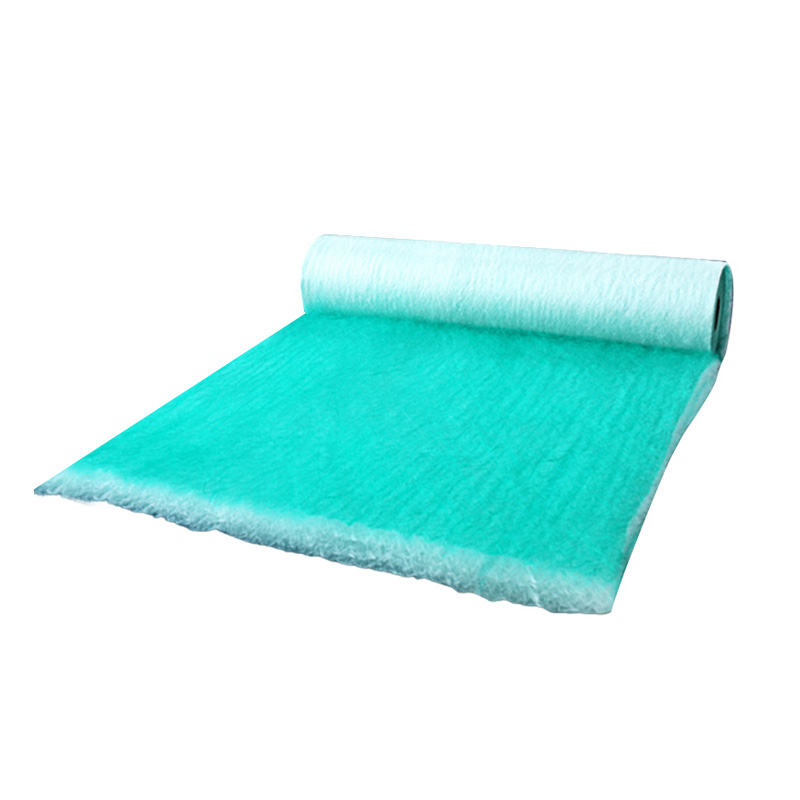paint booth filters
 Apr 18, 2023|
Apr 18, 2023| View:871
View:871what's the pain booth filters?
Paint booth filters are used to filter the air in paint spray booths to remove contaminants and particles that could affect the quality of the paint job or be harmful to the people working in the booth. There are different types of paint booth filters, including:

1.Intake filters: These filters are used to clean the air that enters the paint booth from outside. They help to remove dust, dirt, and other particles that could affect the paint job.
2.Exhaust filters: These filters are used to clean the air that is expelled from the paint booth. They help to remove overspray, fumes, and other contaminants from the paint job.
3.Pre-filters: These filters are used to capture large particles and prevent them from clogging the primary filters in the paint booth.
4.Ceiling filters: These filters are placed in the ceiling of the paint booth to capture overspray and other contaminants that rise up during the painting process.
It's important to regularly replace and maintain these filters to ensure the paint booth is working efficiently and effectively.
what's the size of paint booth filters?
The size of paint booth filters can vary depending on the specific paint booth and the type of filters being used. Some paint booth filters come in standard sizes, while others can be custom-made to fit specific paint booth models.
Common sizes for paint booth filters include:
20" x 20"
20" x 25"
20" x 50"
24" x 24"
24" x 30"
25" x 25"
30" x 30"
36" x 36"
Again, it's important to check the specifications of your specific paint booth and the filters you're using to determine the appropriate size for your filters.
can paint booth filters be washed?
It depends on the type of paint booth filter you have. Some paint booth filters can be washed and reused, while others are designed to be disposable and should not be washed.
Disposable filters, such as fiberglass filters and some polyester filters, are not washable and should be replaced when they become clogged with paint particles and other contaminants. Attempting to wash and reuse these filters could damage them and compromise their filtering effectiveness.
On the other hand, some types of paint booth filters, such as certain polyester and polyurethane filters, are washable and reusable. These filters can be cleaned with water or a special cleaning solution and then allowed to dry before being used again.
It's important to follow the manufacturer's recommendations for cleaning and maintaining your paint booth filters to ensure they are working effectively and efficiently. Using damaged or clogged filters can affect the quality of your paint job and potentially create safety hazards in the paint booth.
when to change paint booth filter?
The frequency at which you should change your paint booth filters will depend on various factors such as the type of filters you're using, the volume of painting being done, and the environment in which the paint booth is located. However, as a general guideline, here are some signs that it may be time to change your paint booth filters:
1.Reduced airflow: If you notice a decrease in the airflow in your paint booth, it could be an indication that your filters are clogged and need to be replaced.
2.Visible dirt or overspray: If you can see dirt or overspray buildup on the filters, it's a sign that they're no longer effective at capturing contaminants and need to be replaced.
3.Decreased paint quality: If you notice a decrease in the quality of your paint job, such as uneven finish or poor adhesion, it could be due to clogged or worn-out filters.
4.Recommended replacement interval: The manufacturer of your filters will typically provide a recommended replacement interval based on the specific type and usage of the filters. It's important to follow these recommendations to ensure the filters are performing effectively.
It's important to regularly inspect your paint booth filters and replace them as needed to ensure the safety of those working in the booth and the quality of your paint job.



 qr315@cooca.com.cn
qr315@cooca.com.cn
